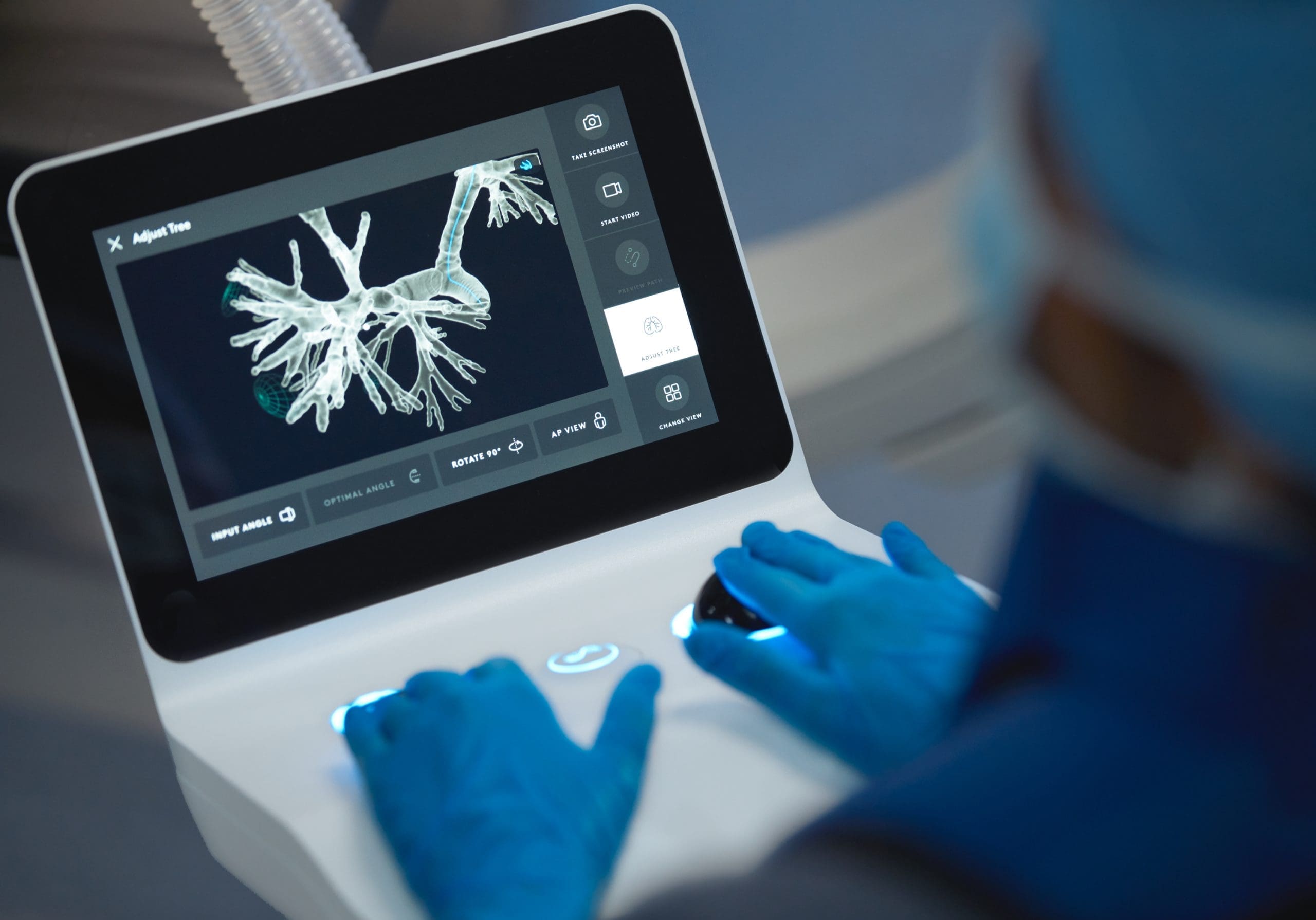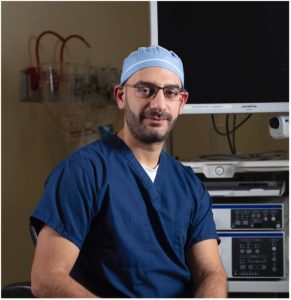
A new state-of-the art robotic tool allows University of Michigan Health-West to diagnose lung cancer at earlier stages, which is key to improving survival from the No. 1 cause of cancer death in the United States.
Although the availability of lung cancer screening has improved early detection of potential cancers, a biopsy is required for diagnosis of early stage cancers – and these usually are very small and located in hard-to-reach parts of the lung.
UM Health-West is addressing that challenge with the region’s first use of the Ion platform, a robotic-assisted bronchoscopy tool for faster, more accurate and minimally invasive biopsies.

The robot’s shape-sensing technology allows interventional pulmonologist Dr. Mounir Ghali to precisely guide a thin catheter through the patient’s mouth into the airway tree, and safely perform a biopsy even in the smallest and most remote regions of the lung.
The procedure takes an hour or less. Patients go home after recovering from anesthesia and can return to work the next day.
“Historically, most cancer diagnoses were late,” Ghali said. “When we are able to detect, diagnose and treat sooner, we can help a patient outlive the cancer.”
The Ion robotic bronchoscopy uses an existing CT scan of the lungs to generate a three-dimensional map to the target area. With a computer acting as a sort of GPS, and a vision probe allowing a real-time view inside the airway, the physician guides a 3.5-millimeter catheter along the path.
The catheter’s narrow diameter and maneuverability allow it to safely twist though tight corners, reaching all segments of the lung. (The Ion also is compatible with existing equipment, including cone-beam CT equipment designed to support real-time bronchoscopic navigation.)
Once the target is reached, a needle inside the catheter collects the biopsy.
“The Ion system offers significant advantages to previous bronchoscopy technology,” said UM Health-West CEO Dr. Peter Hahn, who also is a pulmonologist. “This exemplifies our constant efforts to improve options for patients facing the possibility of lung cancer. Not only is Dr. Ghali a board-certified, fellowship-trained interventional pulmonologist, he is now equipped with the most advanced tool available for fast, safe and accurate diagnosis.”
As part of the Cancer Network of West Michigan, a progressive regional collaboration with Mercy Health and Michigan Medicine, UM Health-West is committed to innovation that provides hope for people in our community who are facing cancer.
Dr. Terrance Barnes, who conducts lung cancer screenings for UM Health-West, says that “with the combination of lung cancer screening, and improved diagnostics, including the Ion robot, we have the opportunity to identify, and diagnose lung cancers earlier, improving patient outcomes.
Barnes says that patients wondering about their risk factors should talk to their physician, or explore the information on our website.